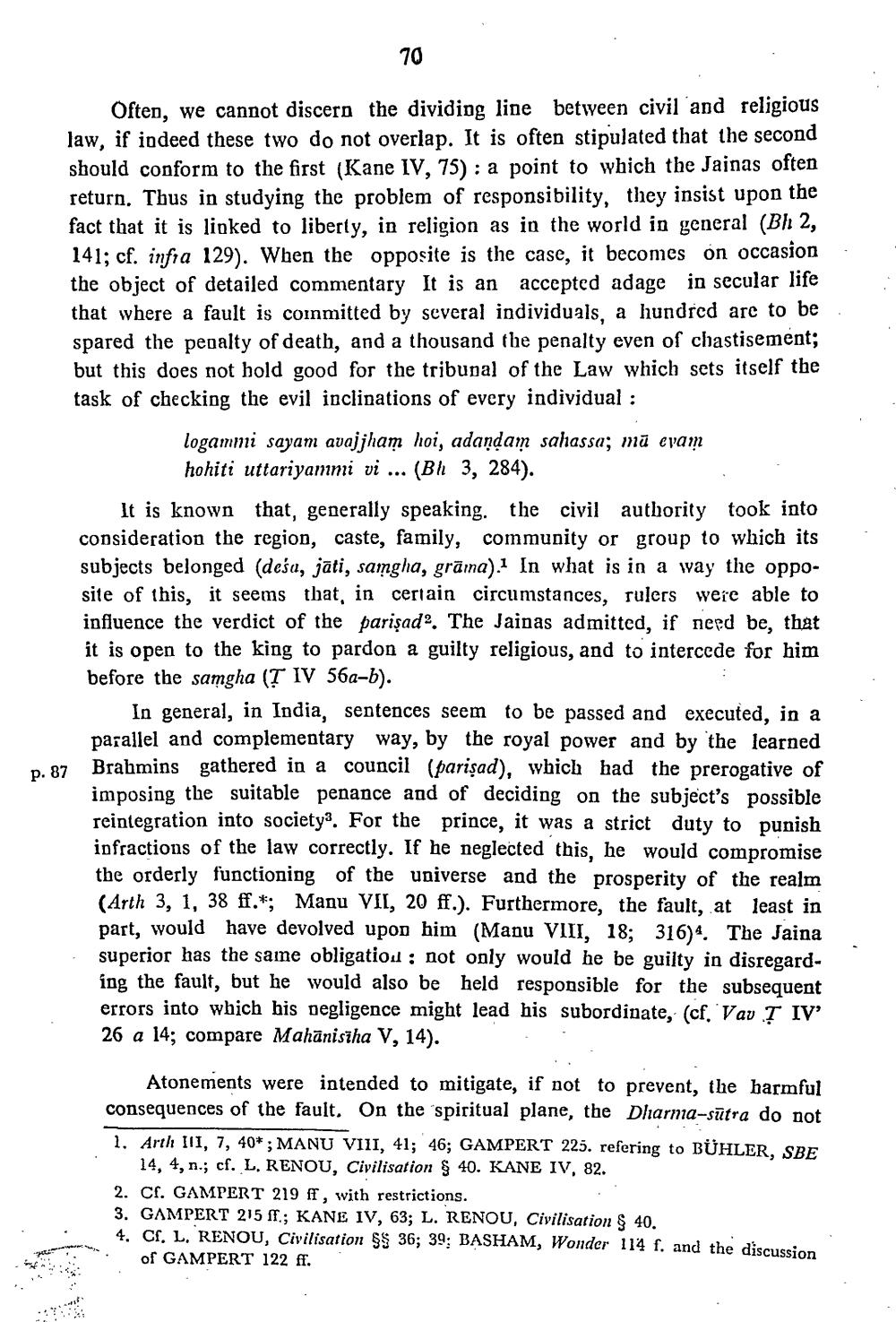________________
10
Often, we cannot discern the dividing line between civil and religious law, if indeed these two do not overlap. It is often stipulated that the second should conform to the first (Kane IV, 75): a point to which the Jainas often return. Thus in studying the problem of responsibility, they insist upon the fact that it is linked to liberty, in religion as in the world in general (Bh 2, 141; cf. infra 129). When the opposite is the case, it becomes on occasion the object of detailed commentary It is an accepted adage in secular life that where a fault is committed by several individuals, a hundred are to be spared the penalty of death, and a thousand the penalty even of chastisement; but this does not hold good for the tribunal of the Law which sets itself the task of checking the evil inclinations of every individual :
logammi sayam avajjham hoi, adandam sahassa; mā eyam
hohiti uttariyammi vi ... (Bh 3, 284). It is known that, generally speaking the civil authority took into consideration the region, caste, family, community or group to which its subjects belonged (deśa, jāti, samgha, grāma). In what is in a way the opposite of this, it seems that, in certain circumstances, rulers were able to influence the verdict of the parişad?. The Jainas admitted, if need be, that it is open to the king to pardon a guilty religious, and to intercede for him before the samgha (T IV 56a-b).
In general, in India, sentences seem to be passed and executed, in a parallel and complementary way, by the royal power and by the learned Brahmins gathered in a council (parişad), which had the prerogative of imposing the suitable penance and of deciding on the subject's possible reintegration into society. For the prince, it was a strict duty to punish infractions of the law correctly. If he neglected this, he would compromise the orderly functioning of the universe and the prosperity of the realm (Arth 3, 1, 38 ff.*; Manu VII, 20 ff.). Furthermore, the fault, at least in part, would have devolved upon him (Manu VIII, 18; 316)4. The Jaina superior has the same obligatio. : not only would he be guilty in disregarding the fault, but he would also be held responsible for the subsequent errors into which his negligence might lead his subordinate, (cf. Vav T IV' 26 a 14; compare Mahānisiha V, 14).
Atonements were intended to mitigate, if not to prevent, the barmful consequences of the fault. On the spiritual plane, the Dliarmia-sūtra do not 1. Arth III, 7, 40* ; MANU VIII, 41; 46; GAMPERT 225. refering to BÜHLER, SBE
14, 4, n.; cf. L. RENOU, Civilisation $ 40. KANE IV, 82. 2. Cf. GAMPERT 219 ff, with restrictions. 3. GAMPERT 215 ff.; KANE IV, 63; L. RENOU, Civilisation $ 40. 4. Cr, L, RENOU, Civilisation $$ 36; 39: BASHAM, Wonder 114 f. and the discussion
of GAMPERT 122 ff.




